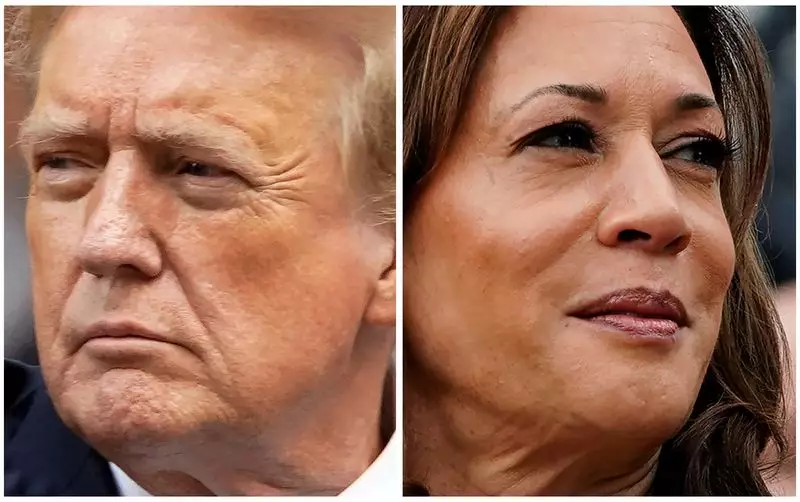The United States finds itself grappling with a staggering budget deficit that has reached an alarming $1.7 trillion for the fiscal year 2024, constituting approximately 6.3% of the Gross Domestic Product (GDP). This deficit marks the third highest in American history, trailing only behind the dramatic financial fallout from the COVID-19 pandemic. The implications of such a high deficit are complex, affecting everything from government funding to socio-economic stability, and will undoubtedly be a focal point as the presidential race intensifies, particularly between the Democratic Vice President Kamala Harris and former President Donald Trump.
The main distinction that analysts at Evercore ISI foresee between a Harris administration and a Trump administration pertains not to the overall deficit levels themselves, but rather to the characteristics of expenditure and revenue generation. Harris is expected to champion policies that enhance social programs and invest in infrastructure. This is anticipated to be funded by a strategy focused on increasing tax revenues, especially from corporations and individuals with high incomes. On the other side of the aisle, Trump is likely to promote strategies aimed at tax reductions and bolster defense spending, while hinting at cuts in some domestic initiatives.
Despite the contrasting approaches, the potential impact on the deficit under both administrations could be strikingly similar. Analysts project that under a Harris-led government, assuming a divided Congress, the budget deficit could rise modestly by an estimated 1.7% of GDP due to financial constraints imposed by a likely Republican-controlled Senate. Conversely, Trump’s policies could lead to an even steeper increase of approximately 1.8% relative to GDP, as certain fiscal conservatism among Republican lawmakers could still impose a limit on deficit scaling.
Perhaps the most disconcerting takeaway from the Evercore ISI analysis is the notion that the fiscal outcomes of Harris and Trump may not significantly differ in broader economic terms. Both candidates appear poised to navigate the nation’s finances toward a challenging future, shaping a landscape that could hinder robust economic growth and exacerbate systemic inequalities. The projections suggest that neither path creates a clear resolution to the deficit crisis, placing the U.S. economy in a precarious position where necessary fiscal adjustments become increasingly urgent.
The Urgency for Fiscal Reforms
As the deadline for decisive action looms, it becomes imperative for lawmakers to address these burgeoning deficits through substantial policy reforms. Continued inaction may not only weaken the nation’s financial footing but also erode public trust in governmental economic stewardship. The stakes are high, and the choices made in the near future will have long-term ramifications on the nation’s economic health and its citizens’ welfare. With both Harris and Trump holding divergent views on how to manage the deficit, engaging in constructive dialogue around sustainable fiscal policy may hold the key to improving the future economic landscape of the United States.

